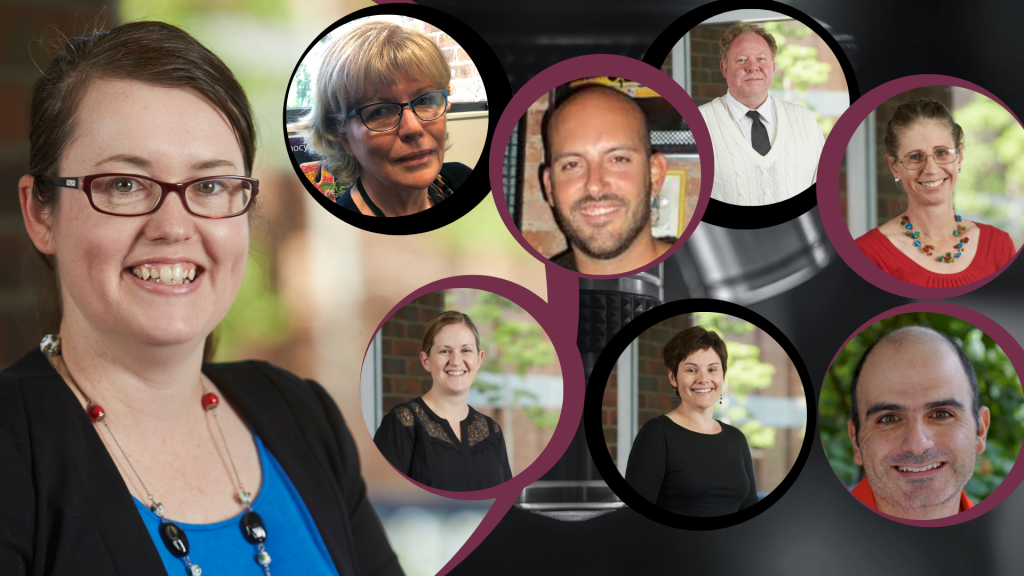
Dr Connie Jackaman, Associate Professor Delia Nelson, Dr Rodrigo Carlessi, Professor Philip Newsholme and Dr Kylie Munyard (top row), Dr Hannah Crabb, Dr Danielle Dye and Associate Professor Giuseppe Verdile (bottom row).
Making diseases of ageing old news is Curtin Health Innovation Research Institute (CHIRI) immunologist Dr Connie Jackaman’s aim and she now has two new funding grants totalling $175,000 to help her do it.
The Cancer Council WA awarded $100,000 to a research team Connie’s leading to investigate immune dysregulation during ageing and the impact on cancer immunotherapy. Contributing to the team are CHIRI researchers Associate Professor Delia Nelson, Dr Rodrigo Carlessi, Professor Philip Newsholme and Dr Kylie Munyard.
A second research project led by Connie, to investigate the impact of acute muscle injury-induced inflammation on the brain in the elderly, received Dementia Australia Research Foundation (DARF) funding of $75,000. Expertise on this team includes CHIRI researchers Dr Hannah Crabb, Dr Danielle Dye and Associate Professor Giuseppe Verdile.
CHIRI Director John Mamo congratulated Connie and her research teams on their success and thanked the two funders.
“We are so grateful to the Cancer Council WA and Dementia Australia Research Foundation for their support,” he said.
“Funding grants like this that enable our researchers to progress the many important and high-quality research projects being carried out at CHIRI, research that is aimed at improving health outcomes and the quality of life of older Australians impacted by disease,” he said.
“These grants are highly-competitive and applications strongly scrutinised, so for Connie and her teams to secure not one but two is a significant achievement and just shows the quality of our team and their research here at CHIRI.”
Applications for the CCWA grants were peer reviewed by the National Health and Medical Research Council (NHMRC) and the Cancer Council WA Research Grants Advisory Committee, whose rankings assisted the CCWA in making its final funding decision.
Connie’s successful application to the DARF was among a total of 122 submitted for the funding and ranked by a panel of experts in dementia research.